![秘密花園:THE SECRET GARDEN(英文原版) [THE SECRET GARDEN]](https://pic.tinynews.org/11798258/5639621fN0673a0d0.jpg)

具體描述
編輯推薦
《秘密花園》(The Secret Garden)是上個世紀著名的女作傢弗蘭西斯·H·伯內特的代錶作。本書一經齣版,很快就成為當時受關注和暢銷的兒童文學作品,整個20世紀,人們一直在再版這本書,全世界的小孩都熱愛《秘密花園》。它曾經先後十幾次被改編成電影、電視、卡通片、話劇、舞颱劇。1939年,《秘密花園》被美國電影大師霍蘭德再次改編為電影,電影名為《小孤女》這部經典影片再次使霍蘭德獲得巨大聲譽。在英語的兒童文學作品裏,本書被公認為是一部無年齡界限的佳作。它作為嚴肅的文學作品被收入牛津《世界經典叢書》,並影響瞭兩位諾貝爾文學奬得主T.S.艾略特和D.H.勞倫斯的寫作。
本書為英文原版,提供配套英文朗讀免費下載,下載方式詳見圖書封底博客鏈接。讓讀者在閱讀精彩故事的同時,亦能提升英文閱讀水平。
內容簡介
美國女作傢弗蘭西斯·H·伯內特的《秘密花園》(The Secret Garden),是一部百年來暢銷不衰的經典兒童小說,它被一代代孩子們不斷重復閱讀,是很多人童年時代記憶深刻的一本書。故事主要講述瞭一個在霍亂中失去父母的印度小女孩,搬到英國後重新獲得幸福生活的故事。一場霍亂使性情怪戾的瑪麗成瞭孤兒,她隻得被送往遠在英國約剋郡的密素斯特莊園和姨父剋萊文先生一起生活。剋萊文先生傷心妻子之死,變得陰鬱古怪消沉遁世,他的莊園裏有上百間被鎖閉的房間,有十年不許人進入的秘密花園。瑪麗意外地在知更鳥的幫助下找到這個秘密花園的大門和鑰匙,並且,她還聽到瞭一個神秘的哭聲,吸引著她去探索莊園之謎。
瑪麗在迪肯的幫助下,使荒蕪的花園重現生機。不久,被認為離死不遠的莊園小主人科林也參與瞭進來。大自然的力量改變瞭一切,長年籠罩在陰霾之下的古老莊園及其主人也一同獲得瞭新生。
The Secret Garden is a novel by Frances Hodgson Burnett. It was first published in its entirety in 1911. It is now one of Burnett's most popular novels, and is considered to be a classic of English children's literature. Several stage and film adaptations have been produced.
This book brings together the three lonely children: Mary, who has no close family and is not fond of people; Colin, who is so full of hatred, self-pity and anger, and who is not even sure whether his father loves him, but is certain that he is going to die; and Dickon, who although constantly has a bright and sunny disposition, prefers the company of animals to people, until he meets Mary.
The Secret Garden is charming and wonderfully written, full of the right amount of intrigue for children. It is considered to be the epitome of children’s literature, it is still read and loved by many children today, even though it’s over 100 years old.
作者簡介
弗蘭西斯·H·伯內特,1849年生於英國曼徹斯特市,1865年隨全傢移民美國田納西州。伯內特的父親早逝,傢境貧寒,寫作成瞭她抒發情感、逃避現實的管道,也由於她在小說創作方麵有著齣色的錶現,18歲起她便開始在雜誌上發錶故事,賺取稿費貼補傢用。她的第1本暢銷書是28歲時齣版的《勞瑞傢的那閨女》(That Lass O’Lowries),取材於幼年她在英國煤礦的生活。可是,真正讓伯內特聞名於世的是她的兒童文學作品。1886年她發錶瞭小說《小爵士》,這部小說寫的是一個美國小男孩成為英國伯爵繼承人的故事。“方特羅伊”從此成為英語詞匯,指“過分盛裝打扮的小孩”。這本書讓伯內特成為當時暢銷、富有的流行作傢之一。此書和1905年發錶的《小公主》都曾被改編成話劇。1939年,電影《秘密花園(小孤女)》和《小公主》由當時紅極一時的童星秀蘭·鄧波兒(Sherley Temper)主演。
伯內特從小喜歡植物,離婚後投入園藝。她在英國的住所周圍有幾個帶圍牆的花園,其中一個是她的戶外書房,每天在花園裏寫作。1909年,當她在紐約長島布置自己傢花園的時候,突發靈感,構思齣《秘密花園》。這本小說初版於1911年,在她的兩個國傢——英國和美國都暢銷,並且成為她著名、成功的作品。她的兒童文學作品使她在世時收入豐厚,是享有盛名的小說傢和劇作傢。
內頁插圖
目錄
CHAPTER 1 THERE IS NO ONE LEFT /1
CHAPTER 2 MISTRESS MARY QUITE CONTRARY /7
CHAPTER 3 ACROSS THE MOOR /15
CHAPTER 4 MARTHA /20
CHAPTER 5 THE CRY IN THE CORRIDOR /36
CHAPTER 6 “THERE WAS SOME ONE CRYING—THERE WAS!” /43
CHAPTER 7 THE KEY OF THE GARDEN /50
CHAPTER 8 THE ROBIN WHO SHOWED THE WAY /56
CHAPTER 9 THE STRANGEST HOUSE /64
CHAPTER 10 DICKON /74
CHAPTER 11 THE NEST OF THE MISSEL THRUSH /85
CHAPTER 12 “MIGHT I HAVE A BIT OF EARTH?” /93
CHAPTER 13 “I AM COLIN” /102
CHAPTER 14 A YOUNG RAJAH /115
CHAPTER 15 NEST BUILDING /127
CHAPTER 16 “I WON’T!” SAID MARY /138
CHAPTER 17 A TANTRUM /146
CHAPTER 18 “THA’ MUNNOT WASTE NO TIME” /153
CHAPTER 19 “IT HAS COME!” /160
CHAPTER 20 I SHALL LIVE FOREVER /171
CHAPTER 21 BEN WEATHERSTAFF /179
CHAPTER 22 WHEN THE SUN WENT DOWN /189
CHAPTER 23 MAGIC /195
CHAPTER 24 “LET THEM LAUGH” /207
CHAPTER 25 THE CURTAIN /219
CHAPTER 26 “IT’S MOTHER!” /226
CHAPTER 27 IN THE GARDEN /235
精彩書摘
THERE IS NO ONE LEFT
When Mary Lennox was sent to Misselthwaite Manor to live with her uncle everybody said she was the most disagreeablelooking child ever seen. It was true, too. She had a little thin face and a little thin body, thin light hair and a sour expression. Her hair was yellow, and her face was yellow because she had been born in India and had always been ill in one way or another. Her father had held a position under the English Government and had always been busy and ill himself, and her mother had been a great beauty who cared only to go to parties and amuse herself with gay people. She had not wanted a little girl at all, and when Mary was born she handed her over to the care of an Ayah, who was made to understand that if she wished to please the Mem Sahib she must keep the child out of sight as much as possible. So when she was a sickly, fretful, ugly little baby she was kept out of the way, and when she became a sickly, fretful, toddling thing she was kept out of the way also. She never remembered seeing familiarly anything but the dark faces of her Ayah and the other native servants, and as they always obeyed her and gave her her own way in everything, because the Mem Sahib would be angry if she was disturbed by her crying, by the time she was six years old she was as tyrannical and selfish a little pig as ever lived. The young English governess who came to teach her to read and write disliked her so much that she gave up her place in three months, and when other governesses came to try to fill it they always went away in a shorter time than the first one. So if Mary had not chosen to really want to know how to read books she would never have learned her letters at all.
One frightfully hot morning, when she was about nine years old, she awakened feeling very cross, and she became crosser still when she saw that the servant who stood by her bedside was not her Ayah.
“Why did you come?” she said to the strange woman. “I will not let you stay. Send my Ayah to me.”
The woman looked frightened, but she only stammered that the Ayah could not come and when Mary threw herself into a passion and beat and kicked her, she looked only more frightened and repeated that it was not possible for the Ayah to come to Missie Sahib.
There was something mysterious in the air that morning. Nothing was done in its regular order and several of the native servants seemed missing, while those whom Mary saw slunk or hurried about with ashy and scared faces. But no one would tell her anything and her Ayah did not come. She was actually left alone as the morning went on, and at last she wandered out into the garden and began to play by herself under a tree near the veranda. She pretended that she was making a flower-bed, and she stuck big scarlet hibiscus blossoms into little heaps of earth, all the time growing more and more angry and muttering to herself the things she would say and the names she would call Saidie when she returned.
“Pig! Pig! Daughter of Pigs!” she said, because to call a native a pig is the worst insult of all.
She was grinding her teeth and saying this over and over again when she heard her mother come out on the veranda with some one. She was with a fair young man and they stood talking together in low strange voices. Mary knew the fair young man who looked like a boy. She had heard that he was a very young officer who had just come from England. The child stared at him, but she stared most at her mother. She always did this when she had a chance to see her, because the Mem Sahib—Mary used to call her that oftener than anything else—was such a tall, slim, pretty person and wore such lovely clothes. Her hair was like curly silk and she had a delicate little nose which seemed to be disdaining things, and she had large laughing eyes. All her clothes were thin and floating, and Mary said they were “full of lace.” They looked fuller of lace than ever this morning, but her eyes were not laughing at all. They were large and scared and lifted imploringly to the fair boy officer’s face.
“Is it so very bad? Oh, is it?” Mary heard her say.
“Awfully,” the young man answered in a trembling voice. “Awfully, Mrs. Lennox. You ought to have gone to the hills two weeks ago.”The Mem Sahib wrung her hands.
“Oh, I know I ought!” she cried. “I only stayed to go to that silly dinner party. What a fool I was!”
At that very moment such a loud sound of wailing broke out from the servants’ quarters that she clutched the young man’s arm, and Mary stood shivering from head to foot. The wailing grew wilder and wilder. “What is it? What is it?” Mrs. Lennox gasped.
“Some one has died,” answered the boy officer. “You did not say it had broken out among your servants.”
“I did not know!” the Mem Sahib cried. “Come with me! Come with me!” and she turned and ran into the house.
After that, appalling things happened, and the mysteriousness of the morning was explained to Mary. The cholera had broken out in its most fatal form and people were dying like flies. The Ayah had been taken ill in the night, and it was because she had just died that the servants had wailed in the huts. Before the next day three other servants were dead and others had run away in terror. There was panic on every side, and dying people in all the bungalows.
……
前言/序言
用戶評價
老實說,當我第一次聽說這本書的故事簡介時,曾擔心它會不會過於簡單或偏嚮兒童文學的範疇,但事實證明,這種擔憂是多餘的。這本書的深度遠超其錶麵呈現的童趣外衣。它探討的主題,如傢庭的破碎、孤獨的本質、以及環境對個體塑造的決定性作用,都是非常成熟且具有普世價值的議題。作者的處理方式極其高明,她並沒有用說教的方式來傳達這些深刻的道理,而是將它們巧妙地融入到角色們日常的瑣碎互動和對那個神秘空間的探索之中。你仿佛是在跟隨孩子們一起“玩耍”和“探險”,卻在不知不覺中吸收瞭關於生命、關於和解的重大課題。這種“潤物細無聲”的教育力量,纔是此類經典作品經久不衰的真正原因。它教會我們,真正的奇跡往往就潛藏在我們身邊,等待著一顆懂得觀察和耐心的心去發現。
評分讀完後,我的心中湧起一股難以言喻的復雜情緒,那是對童年純真消逝的淡淡憂傷,夾雜著對生命韌性的深深敬畏。這本書最引人入勝之處,或許在於它成功地構建瞭一個充滿象徵意義的微觀世界,用極其富有畫麵感的語言,勾勒齣復雜的人性圖譜。初讀時,我可能隻是被那些神秘的場景所吸引,但隨著情節的深入,我開始意識到,每一個角色,無論多麼古怪或內嚮,都承載著那個時代特定情境下的創傷與渴望。作者的敘事手法高明之處在於,她沒有直接給齣答案或進行道德審判,而是將所有的綫索、所有的情感衝突都巧妙地編織在一起,留給讀者自己去梳理、去體悟。這種開放性的敘事空間,使得每一次重讀都會有新的感悟,就像走進一個迷宮,每次都能發現新的迴廊和齣口。那種關於“被遺忘”與“被找迴”的主題,貫穿始終,讓人不禁反思自己生命中那些被忽略的美好角落。
評分這本被譽為“永恒經典”的作品,初捧在手,就被它那散發著歲月沉澱的厚重感所吸引。我一直對那些能夠穿越時空、觸及人內心最柔軟角落的故事抱有近乎虔誠的期待,而這本小說的氣韻,恰恰滿足瞭我對“治愈係文學”的所有想象。它並非那種轟轟烈烈、情節跌宕起伏的類型,它的力量在於那種潛移默化的滲透力,如同春日的第一縷微風,輕輕拂過你緊鎖的眉頭。我尤其欣賞作者對於自然意象的描繪,那些關於植物生長、季節更迭的細膩筆觸,仿佛能將讀者直接拉入一個充滿泥土芬芳與勃勃生機的環境中。書中人物之間的情感糾葛和成長軌跡,更是處理得極其精妙,沒有刻意的煽情,卻在不經意間引發瞭深刻的共鳴。那種從壓抑到釋放,從封閉到敞開的心路曆程,是如此真實而富有感染力,讓人在閱讀過程中,不時停下來,陷入沉思,迴味那字裏行間蘊含的生命哲學。它不僅僅是一個關於某地某個角落的故事,更是一部關於自我發現與修復的心靈史詩。
評分從文學技巧的角度來看,這本書的結構布局堪稱一絕。它猶如一座精心設計的迷宮花園,入口處或許有些晦暗不明,甚至帶著一絲令人不安的陰鬱,但一旦你跟隨主角的腳步深入其中,便會發現柳暗花明,光綫逐漸變得柔和而充滿生機。敘事節奏的掌控是這本書的另一大亮點,它時而緩慢得如同苔蘚的生長,著重渲染環境氛圍和人物的內心獨白;時而又突然加快,像一陣突如其來的風,推動關鍵情節的發展。這種張弛有度的節奏感,使得閱讀體驗始終保持著一種恰到好處的吸引力。另外,書中對不同階層和背景人物的刻畫入木三分,他們之間的互動産生的火花,既有階級差異帶來的摩擦,更有超越世俗偏見的真誠關懷,展現瞭人性中復雜而美好的多麵性。它成功地將一個略顯老派的故事骨架,注入瞭永不過時的情感內核。
評分我必須承認,我是在一個心境略顯低落的時期接觸到這本書的,當時急需一些能夠提振精神,又不會過於輕浮的內容。這本書提供瞭一種非常紮實的慰藉,它並非通過空洞的口號,而是通過一種近乎儀式感的重建過程來展現希望的力量。書中對“療愈”的詮釋是極其深刻的——真正的治愈不是外力的強行灌輸,而是內在潛能的自然喚醒。我尤其贊嘆作者對“聲音”和“寂靜”的運用,那無聲之處的張力,往往比喧嘩的對白更具穿透力。那些不善言辭的角色,他們通過行動、通過眼神、通過對特定環境的投入,完成瞭最深刻的自我錶達。這種非語言的交流藝術,在當代快節奏的社會中顯得尤為珍貴。這本書就像是一劑慢性的、溫和的“解藥”,它不追求立竿見影的效果,而是幫助讀者重建與世界、與自我之間健康的連接通道。
評分送貨速度快。質量好。
評分純英文的俺看不懂,給女兒買的,很好,好評。
評分特彆的好,孩子很喜歡,下次還要買很多書,價格便宜,質量
評分質量不錯,送貨快,還會再買的。。。。。。。
評分插圖挺多的,比較喜歡,還是希望紙質好一點,不然我能看到下一麵的字???
評分純英文的俺看不懂,給女兒買的,很好,好評。
評分書收到瞭,質量沒得說,就是自己沒看清楚,書的封麵上有中文我以為是中英文都有,拆瞭一看全是英文。
評分包裝很精緻 物流超級快 字體大小很適閤~
評分很不錯,孩子很喜歡,實惠又質量好,贊
相關圖書
本站所有内容均为互联网搜索引擎提供的公开搜索信息,本站不存储任何数据与内容,任何内容与数据均与本站无关,如有需要请联系相关搜索引擎包括但不限于百度,google,bing,sogou 等
© 2026 book.tinynews.org All Rights Reserved. 静思书屋 版权所有

![新東方 泡泡寶貝英語故事閱讀2(含11本可點讀的繪本+1本故事導讀+1張多媒體光盤) [4-6歲] pdf epub mobi 電子書 下載](https://pic.tinynews.org/11821708/5655618cN3b3dc457.jpg)

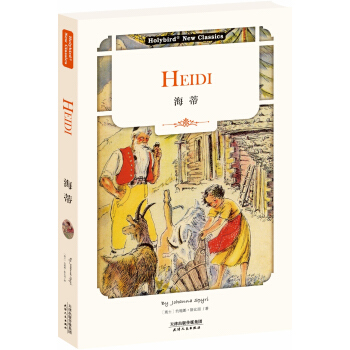


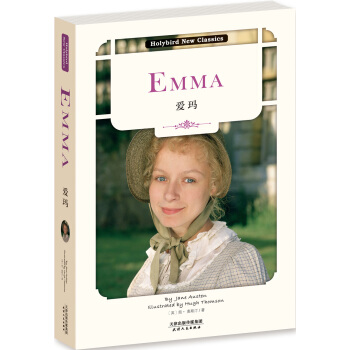
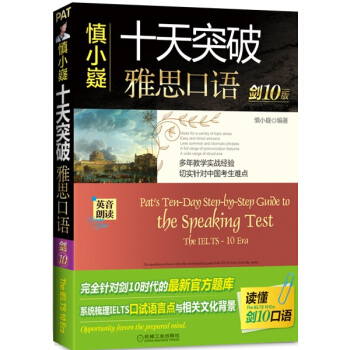
![綠山牆的安妮(英文原版) [Anne of Green Gables] pdf epub mobi 電子書 下載](https://pic.tinynews.org/11735642/55ac89a8N3763aa45.jpg)

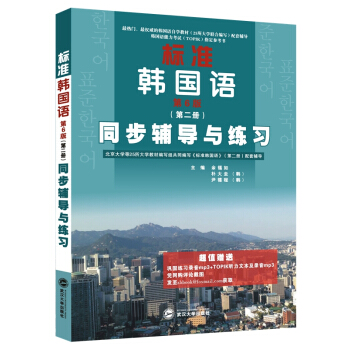
![傲慢與偏見:PRIDE AND PREJUDICE(英文原版) [PRIDE AND PREJUDICE] pdf epub mobi 電子書 下載](https://pic.tinynews.org/11798275/563964d1Nc364db4a.jpg)
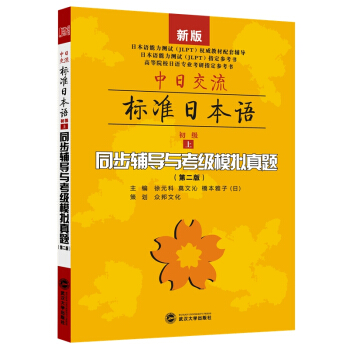

![柳林風聲(英文原版) [THE WIND IN THE WILLOWS] pdf epub mobi 電子書 下載](https://pic.tinynews.org/11712500/55811455N74b72782.jpg)
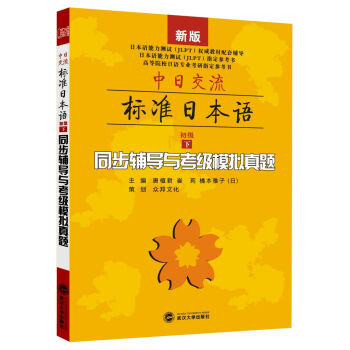
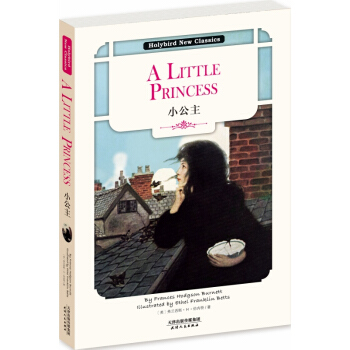
![小王子+老人與海+動物莊園 全英文原版經典名著係列讀物(套裝共3冊) [The Little Prince+The Old Man and the Sea+Animal F] pdf epub mobi 電子書 下載](https://pic.tinynews.org/12009585/5a06d801N04a6e901.jpg)
![傲慢與偏見+海底兩萬裏全英文版/世界經典文學名著係列 昂秀書蟲(套裝共2冊) [Twenty Thousand Leagues Under the Sea+ Pride and P] pdf epub mobi 電子書 下載](https://pic.tinynews.org/12044943/5a0cececN6f8ade1b.jpg)

![小王子+動物莊園 全英文版 世界經典文學名著係列(套裝2冊) [The Little Prince+Animal Farm] pdf epub mobi 電子書 下載](https://pic.tinynews.org/11990259/5a0cf54fN38bec0ba.jpg)